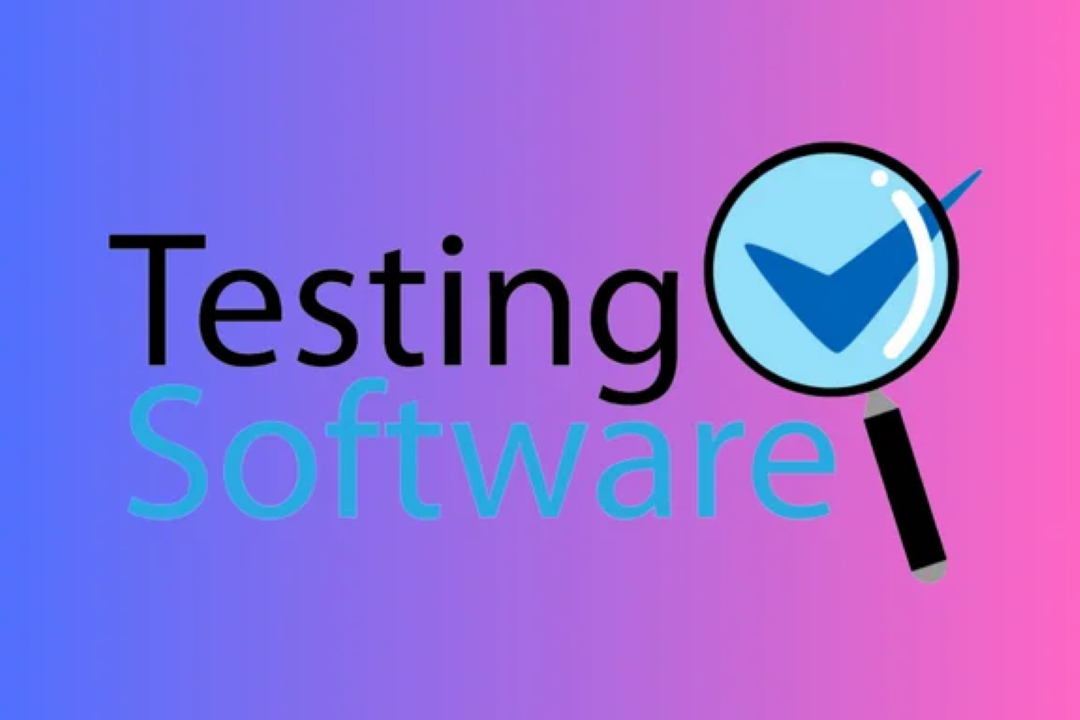Selenium Testing With Python Course
The Selenium Testing with Python course from JustAcademy offers an in-depth exploration of automated
Selenium Testing With Python Course
The Selenium Testing with Python course at JustAcademy equips learners with the essential skills needed for automated web application testing, a critical component in modern software development. By leveraging the power of Selenium combined with Python, participants gain the ability to create robust and efficient test scripts that help ensure software quality and reliability. This course is particularly useful for aspiring software testers and developers, as it not only covers the fundamentals of automation testing but also provides real-time projects that mirror industry requirements. With hands-on experience and a certification from JustAcademy, learners are well-prepared to enhance their careers in the fast-paced field of software testing.
To Download Our Brochure: https://www.justacademy.co/download-brochure-for-free
Message us for more information: +91 9987184296
The Selenium Testing with Python course at JustAcademy equips learners with the essential skills needed for automated web application testing, a critical component in modern software development. By leveraging the power of Selenium combined with Python, participants gain the ability to create robust and efficient test scripts that help ensure software quality and reliability. This course is particularly useful for aspiring software testers and developers, as it not only covers the fundamentals of automation testing but also provides real time projects that mirror industry requirements. With hands on experience and a certification from JustAcademy, learners are well prepared to enhance their careers in the fast paced field of software testing.
Course Overview
The Selenium Testing with Python course at JustAcademy offers a comprehensive learning experience designed for individuals eager to master automated testing of web applications. Participants will explore the fundamentals of Selenium, including setup, locators, and test script creation, while leveraging Python’s robust programming capabilities. Through hands-on projects and practical applications, learners will develop the skills to write, execute, and maintain automated tests efficiently. This course not only prepares students for real-world testing scenarios but also provides a certification that enhances their job prospects in the software testing landscape.
Course Description
The Selenium Testing with Python course at JustAcademy provides an in-depth exploration of automated web application testing using the Selenium framework and the Python programming language. This course covers essential topics, including installation, Selenium WebDriver, locating elements, writing test scripts, and executing tests. Participants engage in hands-on projects that simulate real-world testing scenarios, ensuring a practical understanding of best practices and methodologies. By the end of the course, learners will have gained the expertise needed to develop, run, and maintain effective automated tests, along with a certification that validates their skills in the competitive field of software testing.
Key Features
1 - Comprehensive Tool Coverage: Provides hands-on training with a range of industry-standard testing tools, including Selenium, JIRA, LoadRunner, and TestRail.
2) Practical Exercises: Features real-world exercises and case studies to apply tools in various testing scenarios.
3) Interactive Learning: Includes interactive sessions with industry experts for personalized feedback and guidance.
4) Detailed Tutorials: Offers extensive tutorials and documentation on tool functionalities and best practices.
5) Advanced Techniques: Covers both fundamental and advanced techniques for using testing tools effectively.
6) Data Visualization: Integrates tools for visualizing test metrics and results, enhancing data interpretation and decision-making.
7) Tool Integration: Teaches how to integrate testing tools into the software development lifecycle for streamlined workflows.
8) Project-Based Learning: Focuses on project-based learning to build practical skills and create a portfolio of completed tasks.
9) Career Support: Provides resources and support for applying learned skills to real-world job scenarios, including resume building and interview preparation.
10) Up-to-Date Content: Ensures that course materials reflect the latest industry standards and tool updates.
Benefits of taking our course
Functional Tools
1 - Selenium WebDriver: Selenium WebDriver is one of the primary tools used in the Selenium Testing with Python course. It provides a programming interface for creating automated tests for web applications across different browsers. As a part of the training program, students learn how to interact with web elements such as buttons, forms, and links, allowing them to simulate user actions seamlessly. The course covers advanced features of WebDriver, enabling students to write robust and scalable tests that can replicate complex user interactions with ease.
2) Python Programming Language: Python serves as the backbone for automation testing in this course. Known for its simplicity and readability, Python is widely used in the testing community. Students gain proficiency in Python programming, focusing on libraries and modules that are essential for test automation. The course includes hands on coding sessions, helping students understand Python syntax, functions, and data structures, which are crucial for writing effective Selenium scripts.
3) Pytest Framework: The Pytest framework is integral to structuring and executing test cases in the Selenium Testing with Python course. This tool enables students to write simple as well as complex test cases with minimal code, enhancing efficiency. The course covers the use of fixtures and markers in Pytest, allowing learners to manage test execution environments effectively. This framework supports parameterized testing, which is crucial for enhancing the coverage of tests, making it a favorite among testers.
4) Page Object Model (POM): In this course, students learn the Page Object Model design pattern to enhance maintainability and scalability in their test scripts. POM facilitates the creation of a separate class for each web page in an application, encapsulating the page functionalities. This separation of concerns allows for better organization of automation code, making it easier to update tests when there are changes to the application's UI. The course provides practical examples of implementing POM in real time projects, enabling students to grasp its significance in automation testing.
5) Browser Developer Tools: Understanding browser developer tools is essential in debugging and enhancing automated tests. The course teaches students how to utilize these tools for inspecting web elements, monitoring network activity, and troubleshooting issues. By leveraging developer tools, students learn to locate elements efficiently and understand their properties, ensuring accurate test execution. This skill is crucial for any tester, as it aids in identifying errors and improving test reliability.
6) Continuous Integration Tools (e.g., Jenkins): The integration of Selenium tests with Continuous Integration (CI) tools such as Jenkins is covered extensively in the course. CI tools help automate the testing process and integrate testing into the software development lifecycle. Students learn how to set up Jenkins to run their Selenium tests automatically whenever there are code changes, ensuring that any bugs are identified early in the development process. This knowledge fosters a better understanding of DevOps practices and enhances students' employability in software development environments.
7) Test Automation Frameworks: The course dives deep into various test automation frameworks, emphasizing best practices and design principles. Students are introduced to different types of frameworks, such as data driven, keyword driven, and hybrid frameworks. They learn how to choose and implement the right framework based on project requirements. By building test cases in these frameworks, learners gain a holistic understanding of structuring automation tests, which is crucial for effective test management and execution.
8) Handling Dynamic Elements: Modern web applications often include dynamic elements that can pose challenges for automation testing. The course equips students with strategies to handle these elements, such as using XPath and CSS selectors efficiently. Learners explore techniques for waiting for elements to appear or become interactable, such as implicit and explicit waits. Mastery of these concepts ensures that students can write reliable tests even for complex applications with frequently changing content.
9) Cross Browser Testing: Ensuring that applications work seamlessly across different browsers is a critical part of the testing process. The course provides insight into cross browser testing strategies, including how to configure Selenium tests for different environments. Students learn how to use tools such as BrowserStack or Sauce Labs to conduct automated tests on multiple browsers and devices. This knowledge prepares them to deliver comprehensive testing solutions that meet diverse client needs.
10) Test Reporting and Logging: Clear reporting and logging are vital for understanding test results and identifying issues. The course introduces students to various reporting tools and libraries that can be integrated with Selenium, such as Allure and Extent Reports. Learners practice generating detailed reports that summarize test execution results, which help stakeholders understand testing outcomes effectively. Additionally, the course emphasizes the importance of logging information during test execution for better debugging and issue tracking.
11 - Best Practices in Automation Testing: The curriculum includes a section on best practices for test automation, helping students understand common pitfalls and how to avoid them. Topics covered include maintaining test scripts, writing reusable code, and adhering to coding standards. By learning these best practices, students can ensure their automation efforts are sustainable and less prone to technical debt over time.
12) Integrating with APIs: In many real world projects, testing goes beyond UI automation. The course introduces students to integrating Selenium tests with APIs, allowing for more comprehensive testing strategies. Students learn how to perform API testing using tools like Postman and integrate those tests into their automation workflows. This skill set enables them to verify data flows and user interactions comprehensively, leading to higher quality software.
13) Version Control Systems (e.g., Git): Collaboration in software testing often requires the use of version control systems. The course covers the fundamentals of Git, teaching students how to manage their code effectively, track changes, and collaborate with other team members. By integrating Git with their Selenium projects, students learn how to maintain version history and ensure that their test scripts are always up to date and aligned with application changes.
14) Real Time Project Implementation: To cement their learning, students engage in real time projects that simulate real world testing scenarios. These projects are designed to challenge learners and encourage them to apply their newly acquired skills in a practical context. The experience gained from working on actual projects helps build confidence and prepares students for potential job roles in the industry.
15) Interview Preparation and Career Guidance: As a valuable addition to the curriculum, the course offers interview preparation modules and career guidance. Students receive insights into common interview questions related to Selenium and automation testing, along with tips on how to present their skills effectively to potential employers. This support is crucial in helping graduates transition smoothly into the job market and secure positions in competitive roles.
Browse our course links : https://www.justacademy.co/all-courses
To Join our FREE DEMO Session:
This information is sourced from JustAcademy
Contact Info:
Roshan Chaturvedi
Message us on Whatsapp: +91 9987184296
Email id: info@justacademy.co












